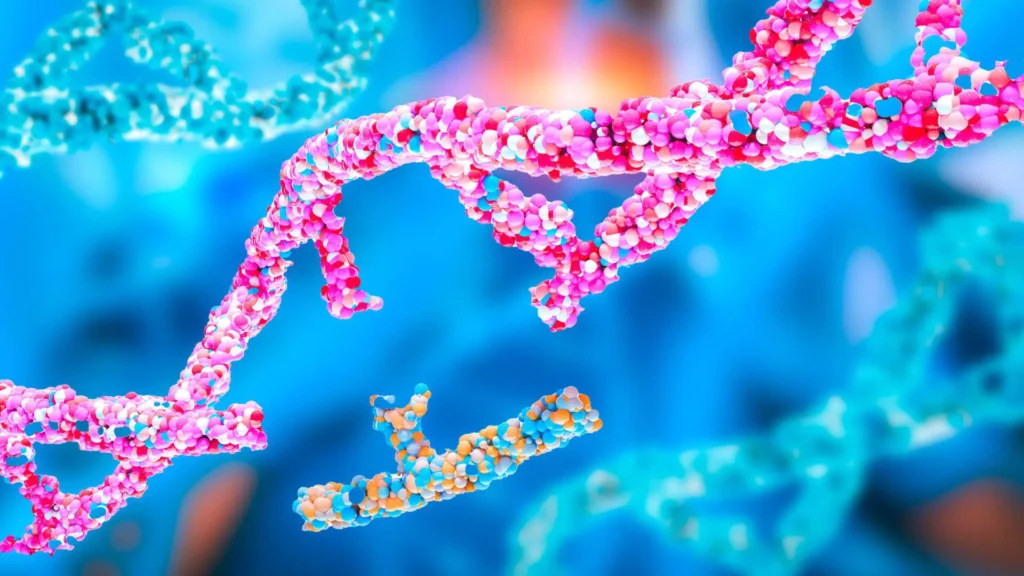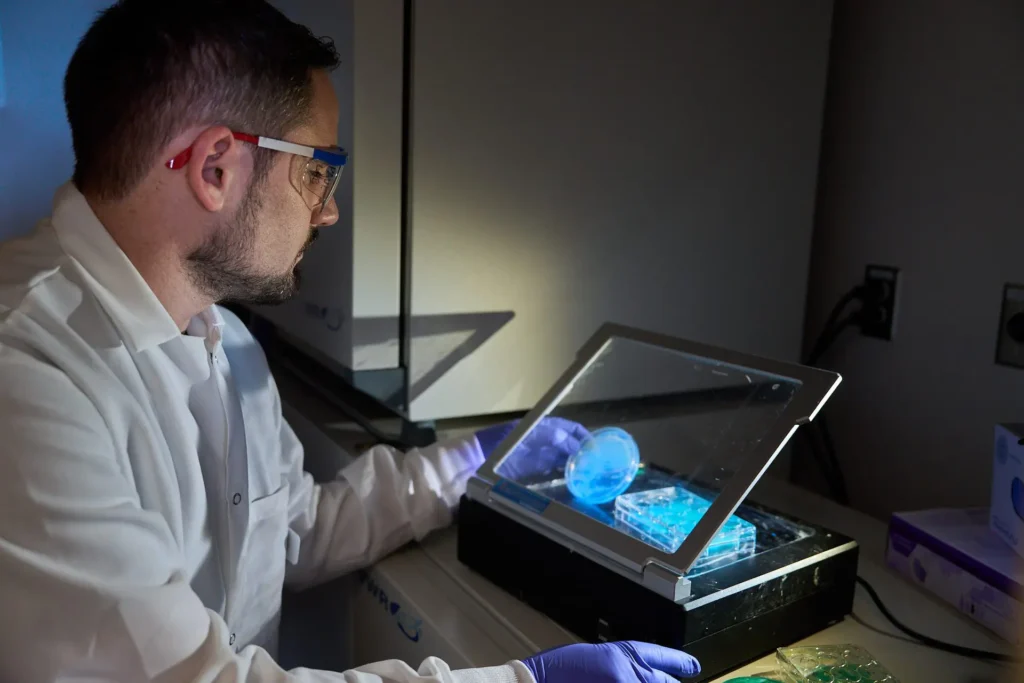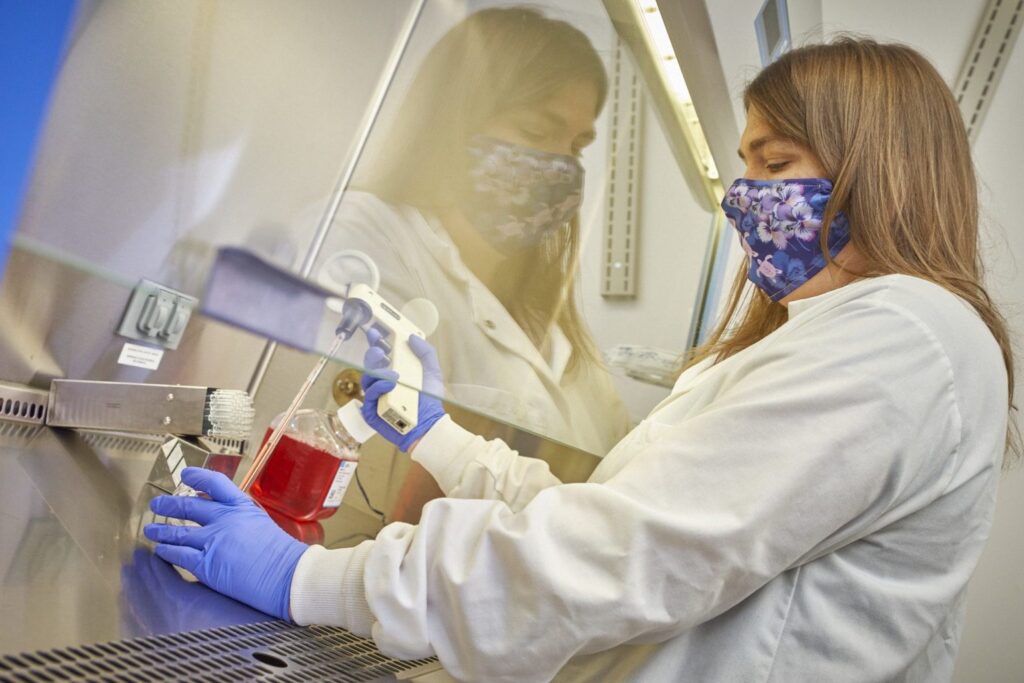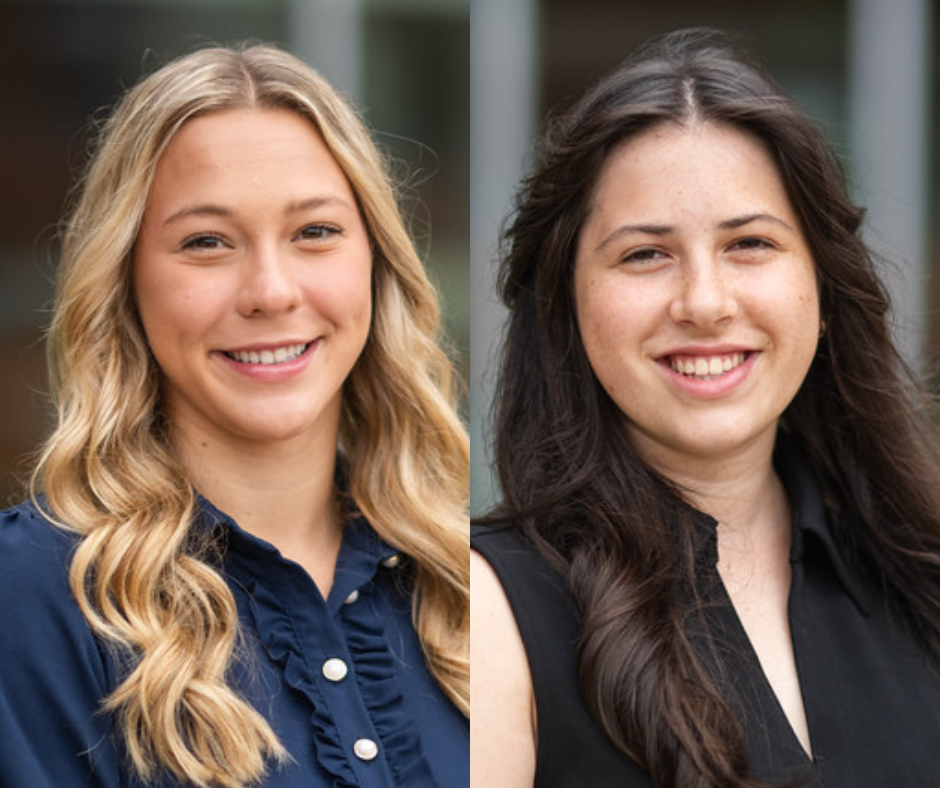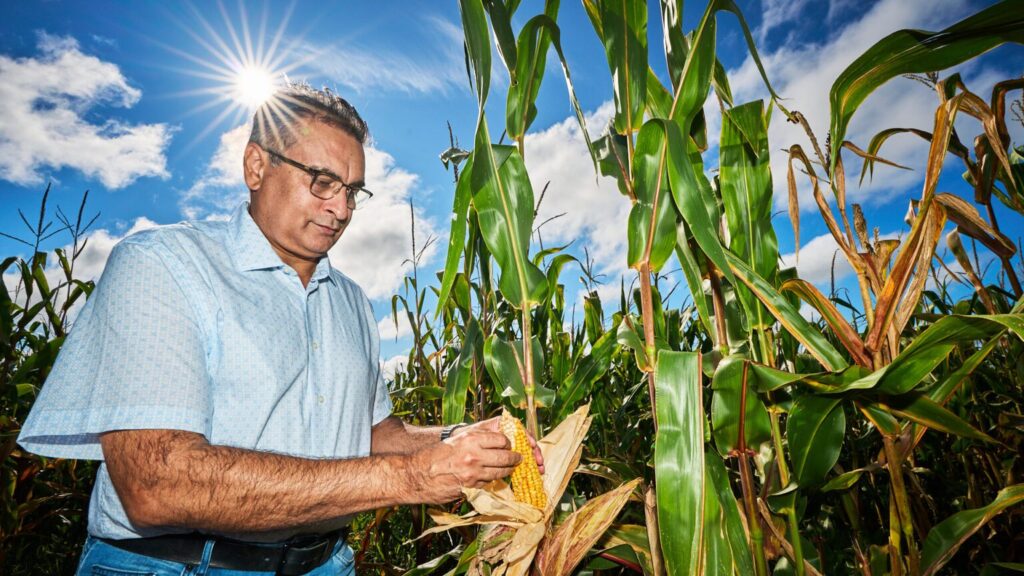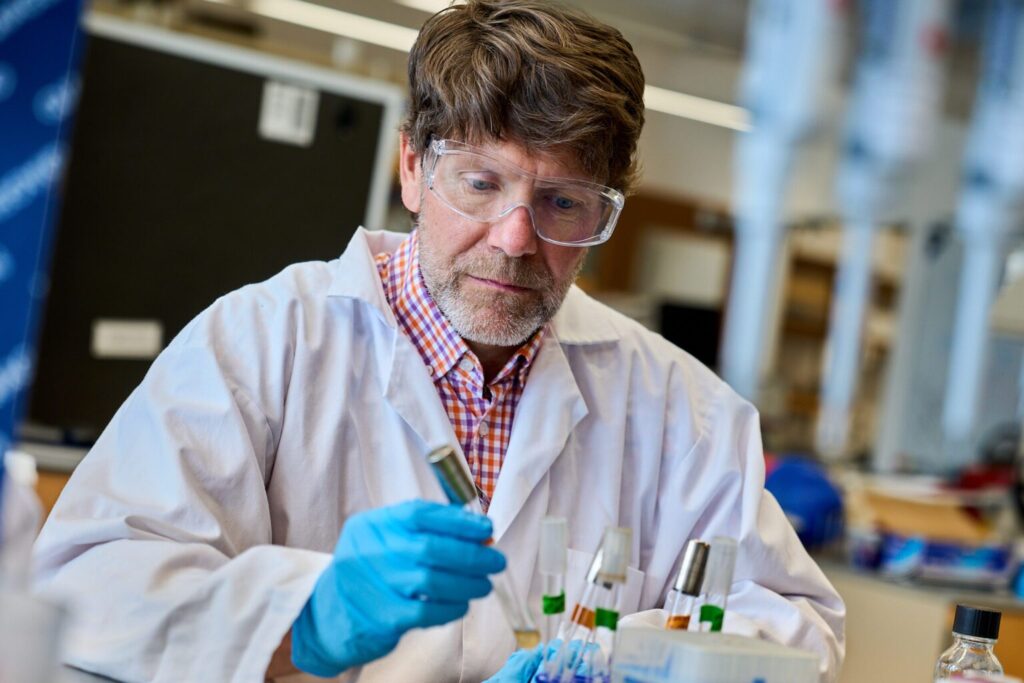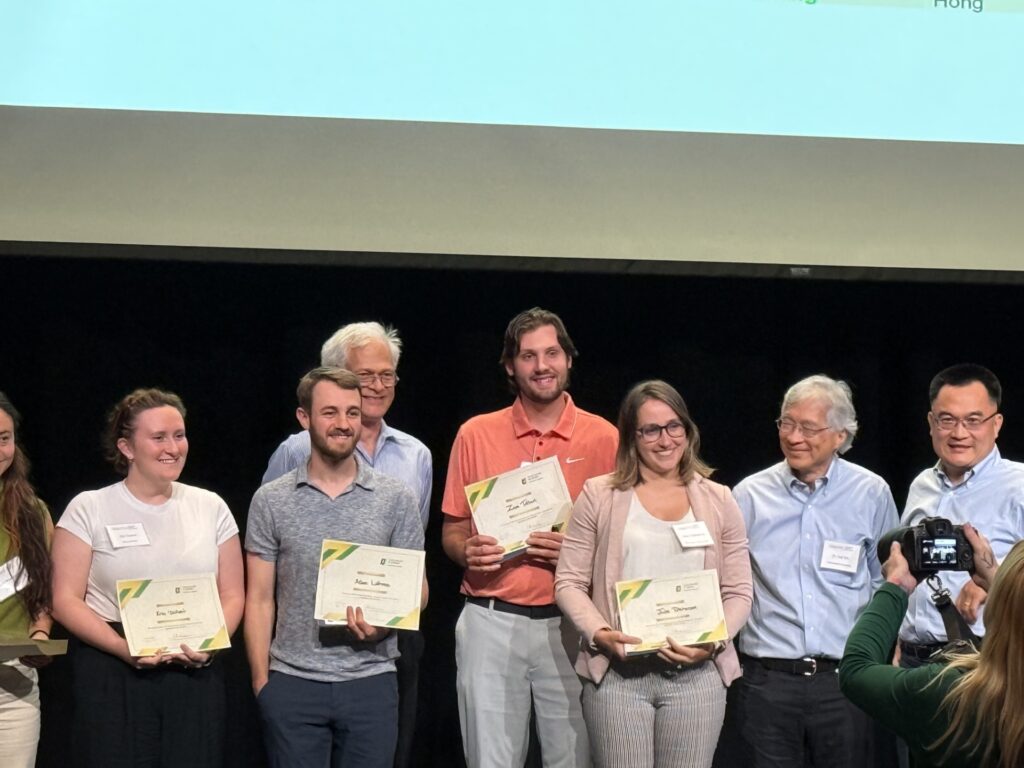
When graduating Ph.D. student Sabrina Pizzaro was an undergraduate biology major at North Greenville University, she participated in the Biology National Science Foundation – Research Experience for Undergraduates (NSF-REU) here at Clemson working with G&B’s Dr. Hong Luo. Though Luo’s specialty – plants – might not have sparked Sabrina’s interest, Clemson, the department and the Eukaryotic Pathogens Innovations Center (EPIC) did!
“It was a great experience! I loved the environment of the campus and knew I wanted to come back. I knew I was interested in some of the EPIC labs, so I got to meet with a handful of professors I was interested in working with, including Dr. Jim Morris. There was research that interested me, and I would be within an hour of both mine and my husband’s families; it seemed like a perfect fit!”

Sabrina arrived on campus in Fall 2019 and began courses, research and TA work.
“I taught in the teaching labs for three years! Getting to interact with our undergraduate students was truly an honor; we have amazing students in our program.”
Sabrina’s Ph.D. research in EPIC focuses on Trypanosome brucei, the parasite that causes African Sleeping Sickness. In these parasites, glycolysis occurs within specialized peroxisomes, called glycosomes, rather than in the cytosol, and the bloodstream form of the parasite is completely reliant on glycolysis for ATP production.

“Our lab focuses on how to target the glycolytic pathway. I’ve worked on two main projects; one where I have studied using peroxisomal targeting sequences to traffic drugs into the glycosome where they can inhibit glycolytic enzymes and the other where I studied two putative proton transporters involved in regulating the pH of the glycosome.”
Something other than coursework and research that has been a prevalent part of Sabrina’s time at Clemson is the Genetics and Biochemistry Graduate Student Association (GBGSA).
“For the past few years, I’ve served on the leadership team for the GBGSA. The main goal of GBGSA is to foster community within our graduate student body, and that goal really resonates with me. I think that community is incredibly important in every aspect of life, and grad school is far from an exception to that rule.”

When not on campus, Sabrina loves to bake sourdough, watch Clemson Women’s gymnastics, rock climb, lead worship at church, grow carnivorous plants, crochet amigurumi and design nail art.

On October 22nd, Sabrina presented her Ph.D. defense titled Exploring Glycosomes as Therapeutic Targets for Trypanosome brucei and will graduate this December.
